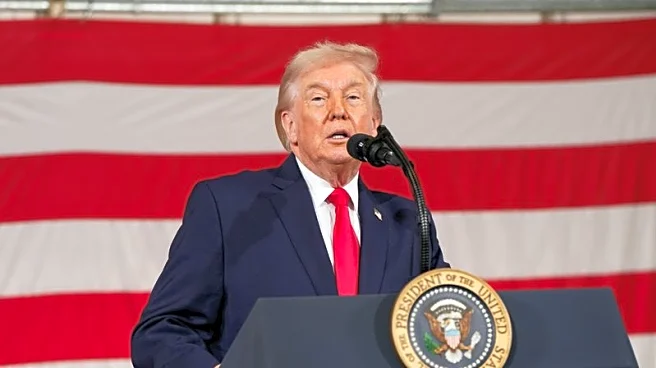What's Happening?
The U.S. Supreme Court recently heard a case concerning the Trump administration's 'reciprocal' tariffs. During the hearing, both liberal and conservative judges expressed skepticism about the legal foundation of these tariffs. This development has influenced
market predictions, with traders on Polymarket estimating only a 26% chance that the tariffs will be upheld, a decrease from approximately 50% the previous day. Following the hearing, U.S. stock markets experienced a rise, recovering from losses incurred on Tuesday. However, the potential end of tariffs does not guarantee a positive outcome for stocks. If the Supreme Court mandates the White House to refund billions in collected duties, it could exacerbate the U.S. government's debt situation, potentially leading to increased Treasury yields, which might exert pressure on stocks.
Why It's Important?
The Supreme Court's decision on the tariffs could have significant implications for the U.S. economy and global trade relations. If the tariffs are overturned, it could lead to a reduction in trade tensions and potentially lower costs for businesses reliant on imported goods. However, the financial burden of refunding collected duties could strain the U.S. government's finances, leading to higher interest rates and impacting borrowing costs for businesses and consumers. Additionally, President Trump may use other executive powers to reimpose tariffs, creating further uncertainty for businesses and markets. This situation underscores the complex interplay between legal decisions, economic policy, and market dynamics.
What's Next?
Should the Supreme Court rule against the tariffs, the White House may need to explore alternative trade policies or executive actions to achieve its economic objectives. Businesses and investors will be closely monitoring the situation for any signs of policy shifts that could affect trade and market stability. The outcome of this case could also influence future administrations' approaches to trade policy and executive authority. Stakeholders, including businesses, policymakers, and international trade partners, will need to adapt to the evolving trade landscape and its implications for global commerce.

















